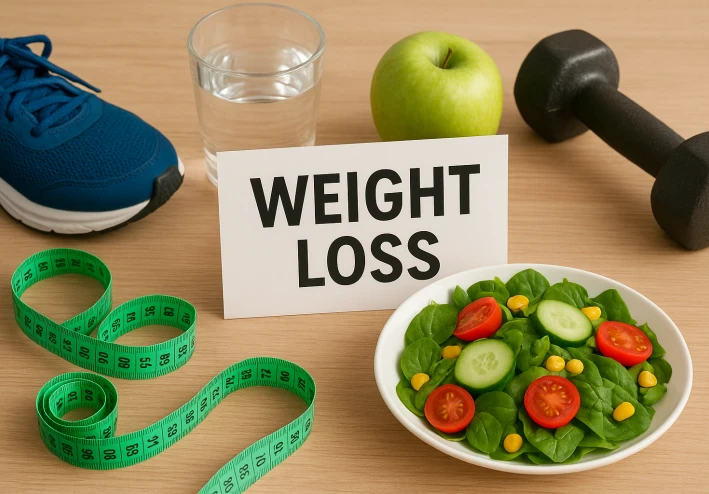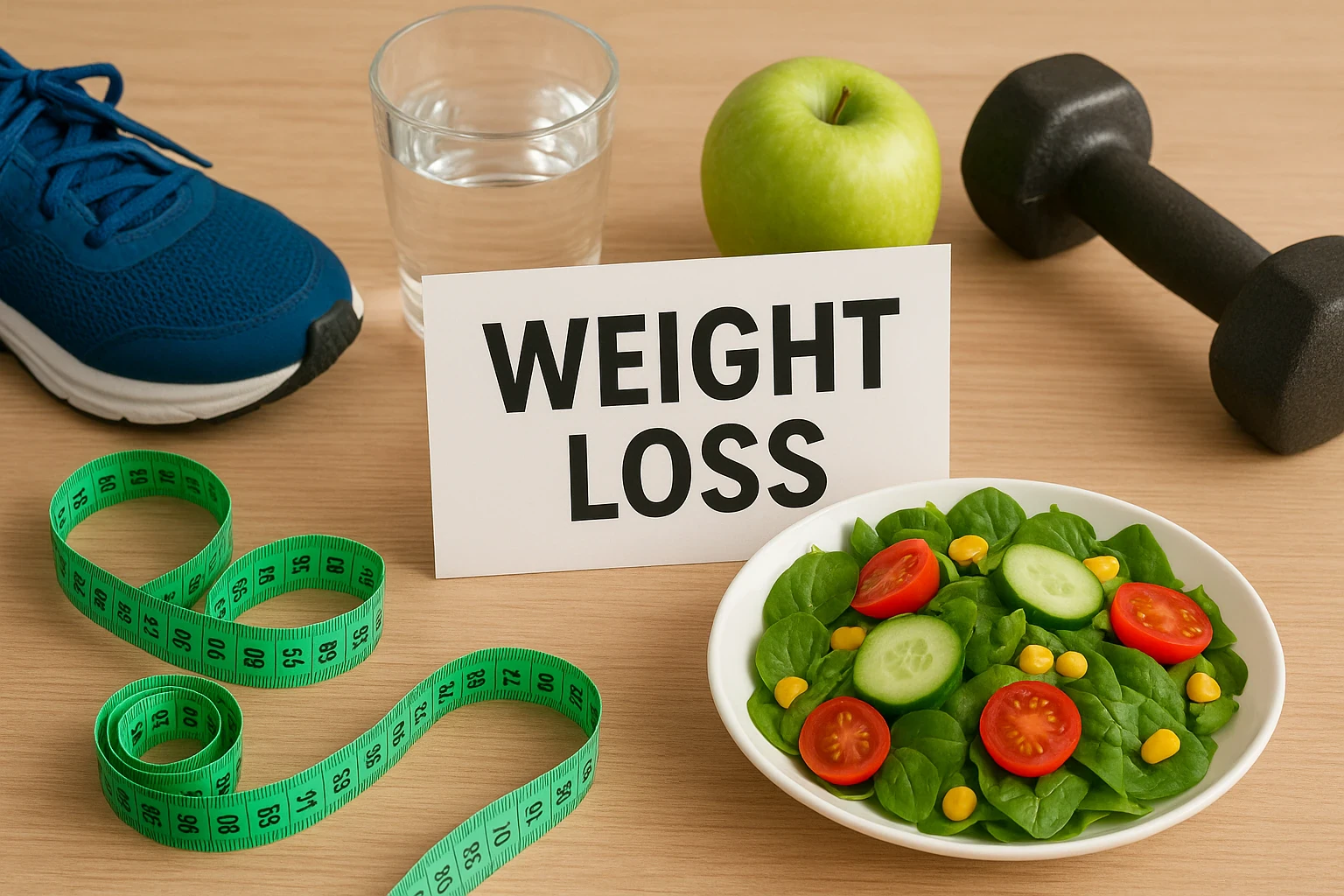
The Complete Guide to Weight Loss: Science, Strategies, and Sustainable Success
This guide breaks down the essentials of weight loss: the science behind it, proven strategies, common myths, and tips for building a healthy relationship with food, exercise, and your body

Weight loss is one of the most common health and lifestyle goals worldwide. Millions of people each year seek to shed extra pounds, not only to look better but also to feel healthier and improve their quality of life. While the journey can sometimes feel overwhelming, weight loss doesn’t need to be complicated or extreme. When grounded in science and paired with sustainable habits, it can become a lifelong success rather than a temporary struggle.
At its core, weight loss is about creating a **calorie deficit**—burning more calories than you consume. Calories are units of energy, and your body requires them to function. When you eat more calories than you burn, your body stores the excess as fat. Conversely, when you consume fewer calories than you expend, your body taps into stored fat for energy, leading to weight loss.
However, it’s not only about calories. Hormones, sleep, stress levels, metabolism, and even gut health all play important roles in how your body manages weight. That’s why some people may find losing weight more challenging than others, despite similar diets and exercise routines.
---
## Benefits of Healthy Weight Loss
Losing weight in a sustainable and balanced way goes far beyond appearance. Research consistently shows that healthy weight loss can:
1. **Reduce risk of chronic diseases** – Excess weight is linked to heart disease, type 2 diabetes, high blood pressure, and certain cancers.
2. **Improve mobility and joint health** – Carrying less weight eases stress on joints, reducing pain and risk of arthritis.
3. **Boost energy levels** – A lighter, healthier body often moves more easily and requires less effort to perform daily tasks.
4. **Enhance mental health** – Many people experience improvements in mood, confidence, and self-esteem.
5. **Improve sleep quality** – Weight loss is strongly linked to reduced risk of sleep apnea and better overall rest.
---
## Common Myths About Weight Loss
Before diving into strategies, it’s important to clear up some misconceptions:
* **Myth 1: Carbs make you fat.**
Carbohydrates are not the enemy. Whole, unprocessed carbs like fruits, vegetables, and whole grains provide essential energy and nutrients. Overeating refined carbs (like white bread, pastries, and sugary snacks), however, can contribute to weight gain.
* **Myth 2: Fats should be avoided.**
Healthy fats—such as those found in avocados, nuts, olive oil, and fish—are crucial for brain health, hormones, and satiety. It’s trans fats and excessive saturated fats that are harmful.
* **Myth 3: Skipping meals helps you lose weight.**
Skipping meals often backfires by leading to overeating later. Balanced, regular meals help regulate hunger and maintain energy.
* **Myth 4: You need extreme diets.**
Fad diets may deliver quick results, but they are rarely sustainable. Most people regain weight after returning to normal eating patterns.
* **Myth 5: Exercise alone is enough.**
While exercise is vital for health, diet plays a much larger role in weight loss. A combination of both yields the best results.
---
## Proven Strategies for Effective Weight Loss
### 1. Set Realistic Goals
Aiming to lose 1–2 pounds (0.5–1 kg) per week is considered healthy and sustainable. Unrealistic goals often lead to frustration and giving up.
### 2. Prioritize Whole Foods
Focus on eating nutrient-dense foods:
* Fruits and vegetables
* Lean proteins (chicken, fish, legumes, tofu)
* Whole grains (brown rice, oats, quinoa)
* Healthy fats (nuts, seeds, olive oil, avocado)
These foods provide vitamins, minerals, fiber, and protein that keep you full longer and reduce cravings.
### 3. Practice Portion Control
Even healthy foods can lead to weight gain if eaten in excess. Learning to listen to hunger cues, using smaller plates, and avoiding mindless snacking are effective ways to manage portions.
### 4. Stay Hydrated
Sometimes thirst is mistaken for hunger. Drinking water regularly not only supports metabolism but can also prevent unnecessary snacking.
### 5. Incorporate Regular Exercise
Exercise helps burn calories, build muscle, and improve overall health. A balanced routine should include:
* **Cardio:** walking, running, cycling, or swimming for calorie burn.
* **Strength training:** builds muscle, which increases metabolism.
* **Flexibility and bal






























